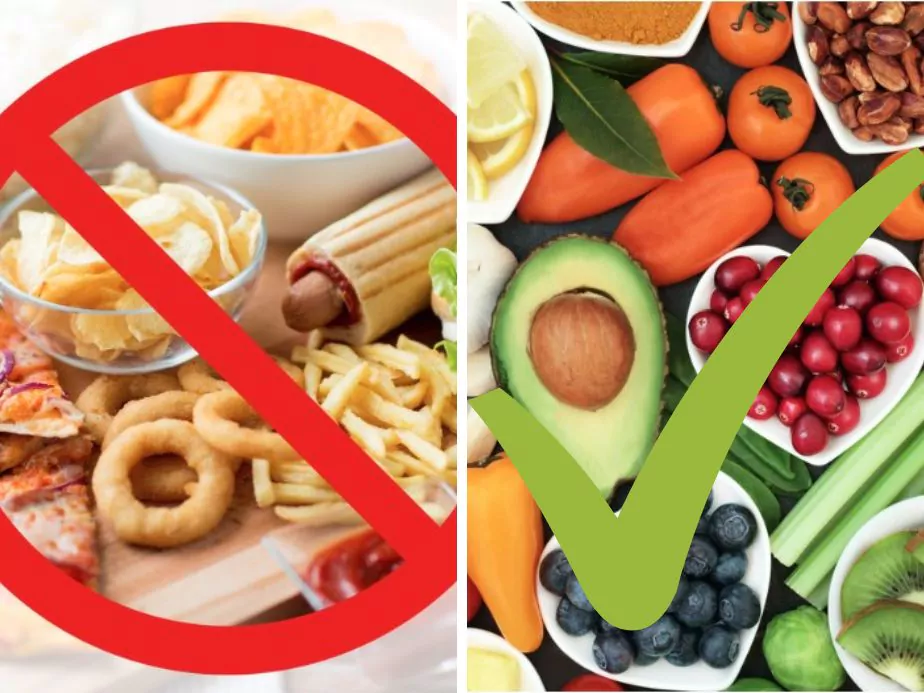How to Lose 60 Pounds in 6 Months: Proven Strategies for Success

Navigating the weight loss journey can be daunting, especially when setting ambitious targets. If you’re keen on understanding How to Lose 60 Pounds in 6 Months, you’ve landed in the right place. This comprehensive guide will walk you through scientifically-backed strategies and daily routines that can help you achieve this challenging but attainable goal. Let’s embark on this transformative journey together and set the foundations for a healthier lifestyle.
1 Why It Is Difficult To Lose Weight?
Understanding the Weight Loss Equation
Let’s start with the basics: weight loss is primarily about calorie consumption. The fundamental principle here is the calorie deficit. To lose one pound of body weight, you need to burn about 3,500 more calories than you consume. If you’re targeting to lose 60 pounds in 6 months, that’s a total of 210,000 calories you need to burn in deficit, or about 1,166 fewer calories per day.
Caloric intake plays a pivotal role. Using a basal metabolic rate calculator or BMR calculator can give you an insight into how many calories your body needs daily. From there, you can determine how many calories you need to consume and burn to achieve your weight loss goals.
2 Crafting a Healthy Diet

A healthy diet isn’t just about reducing diet calories. It’s also about making smart food choices. Contrary to conventional fitness wisdom, not all calories are created equal. A 200-calorie candy bar and a 200-calorie plate of veggies with lean protein will have very different effects on your body.
Avoid processed foods: They often contain hidden sugars and unhealthy fats, even if they are labeled as “healthy-sounding foods.” Processed foods can easily sabotage your weight loss efforts.
Read food labels: Always check for hidden sugars, unhealthy fats, and calorie amounts. This constant knowledge will help you make informed decisions.
Choose whole foods: Think vegetables, lean meats, whole grains, and legumes. A prime example is replacing regular pasta with spaghetti squash.
Limit junk food: Those empty calories can quickly derail your efforts. And while a diet soda might sound like a healthier option, it’s best to drink water or natural beverages.
3 Engage in Sensible Exercise Routine

While diet is crucial, exercise can accelerate your weight loss journey. Here’s how you can approach it:
Weight training: Strength training helps to build muscle. The more muscle you have, the more calories your body burns at rest. Don’t be mistaken by thinking weight training is just for those wanting to bulk up. It’s essential for those aiming to lose weight.
Cardio: This is essential for burning fat. Whether you’re a walker or prefer high-intensity interval training, cardio boosts your heart rate, improving blood pressure and burning exercise calories.
Consistency: A single exercise session won’t make a huge dent. But a steady and sensible exercise routine, complemented with a healthy diet, can lead to steady weight loss.
Remember, always consult a medical professional before starting any exercise regime.
4 Mind Your Eating Habits
A few practices can support your journey:
Portion control: Often, it’s not what we eat, but how much we eat. Reducing portion sizes can significantly reduce calorie intake.
Prepare for unavoidable large meals: Holidays or celebrations often come with indulgent foods. Opt for larger portions of veggies and lean meats and smaller portions of fried foods or desserts.
Stay hydrated: Drinking water aids in digestion and can also give you the feeling of fullness, ensuring you eat less.
5 Monitor Progress and Stay Motivated
Incorporate the practice of regularly weighing yourself and noting changes. This immediate feedback helps in maintaining motivation. Remember, a steady weight loss of one to two pounds per week is ideal. Any more than that, and you risk health complications and excess skin.
Keep an online journal or use online resources. Share your weight loss journey, seek advice, and gain motivation from peers going through similar challenges.
6 Watch Out for Pitfalls
Gaining weight: Temporary weight gain can be disheartening. But understand that factors like water retention, menstrual cycles, or even a larger-than-usual meal can lead to short-term gains.
Plateaus: Every weight loss journey has them. When you hit one, revisit and adjust your calorie intake and exercise routine.
The holiday season: It’s easy to overindulge. Ensure portion control, choose the right foods, and allow yourself a small treat without going overboard.
7 Wrapping Up
Embarking on a journey to lose 60 pounds in 6 months requires commitment, knowledge, and a fair amount of effort. But armed with the right tools, strategies, and mindset, it’s achievable. Understand the importance of calories, both in terms of consumption and burning, adapt your daily diet, and incorporate a sensible exercise routine.
Remember, it’s not just about losing weight but also about making a life change that’s sustainable and beneficial in the long run. Your efforts to shed those 60 pounds will not only boost your energy level but will also provide invaluable health benefits that extend far beyond the scale.
FAQ's about How to Lose 60 Pounds in 6 Months
Is it safe to lose 60 pounds in 6 months?
While losing 60 pounds in 6 months is ambitious, it can be safe if done with a structured plan under professional guidance. It translates to about 10 pounds per month, which is slightly more than the often recommended 1-2 pounds per week.
What diet plan should I follow to achieve this weight loss?
A combination of a balanced diet, focusing on whole foods like vegetables, lean proteins, whole grains, and healthy fats, can be effective. It’s vital to maintain a calorie deficit, but consult a nutritionist for a tailored plan.
How much exercise is required to lose 60 pounds in 6 months?
It’s generally recommended to engage in at least 150 minutes of moderate aerobic exercise or 75 minutes of vigorous activity weekly, along with strength training. The specific duration can vary based on individual metabolism and diet.
Are there any risks associated with rapid weight loss?
Rapid weight loss can lead to nutritional deficiencies, loss of lean muscle mass, and other health concerns. Always consult a healthcare professional when undertaking a significant weight loss journey.
Will I experience loose skin after losing 60 pounds?
The possibility exists, especially with rapid weight loss. Factors like age, genetics, and the duration of the weight gain can influence skin elasticity.
How can I ensure that I maintain the weight loss?
Incorporating sustainable lifestyle changes, continuing a balanced diet, regular exercise, and monitoring your weight can help maintain the weight loss.
Do I need to take supplements while trying to lose this weight?
While it’s best to get nutrients from whole foods, some individuals might benefit from supplements, especially if there are dietary restrictions. It’s essential to consult a nutritionist before starting any supplements.
Can I drink alcohol while trying to lose 60 pounds in 6 months?
Alcohol is calorie-dense and can hinder weight loss progress. It’s best to limit or avoid alcohol during this period to maximize results.
What role does sleep play in weight loss?
Adequate sleep is crucial as it aids in recovery, reduces stress, and regulates hunger hormones. Aim for 7-9 hours of quality sleep nightly.
How can I stay motivated during this 6-month journey?
Setting smaller, incremental goals, celebrating milestones, having a support system, and visualizing the end result can keep motivation levels high. Remember, consistency is key!
Community Q&A
About This Article
This article has been viewed 357 times.



